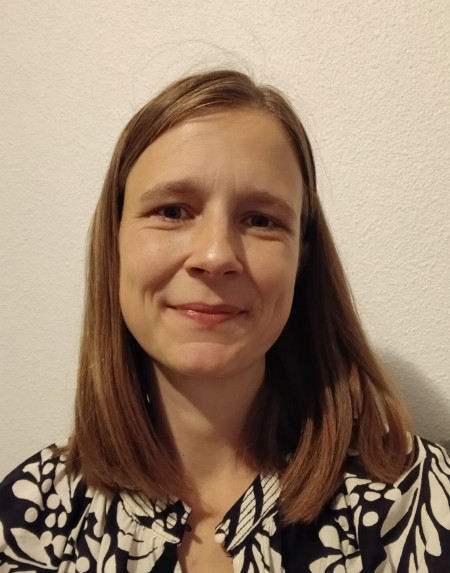
Dr Marion Ernwein
Senior Lecturer In Environmental Geography
Biography
Professional biography
I joined the Open University in October 2020 after previously holding research and teaching positions at the Universities of Oxford, Fribourg (Switzerland), and Geneva (Switzerland). I studied geography at undergraduate level at the University of Rennes 2 (France) and hold an MA and a PhD in geography from the University of Geneva.
Research interests
I am a cultural and political ecologist with a focus on urban ecologies.
Broadly speaking, my research interests encompass the following:
1) The political economy of urban nature
My early research examined how urban responses to global environmental challenges—specifically relating to biodiversity loss, biosecurity, and food sufficiency—are shaped by neoliberal logics of eventification, neomanagerialism, and public-private partnerships. My book Les Natures de la Ville Néolibérale: Une Ecologie Politique du Végétal Urbain (UGA Editions, 2019), tackles some of these questions, drawing on research in Geneva.
Building on this work, my current research investigates how austerity policies in France and the UK are reshaping local environmental governance and environmental work (encompassing professional, volunteer, and more-than-human work).
2) The changing role of plants in urban environmental management
A second strand of my research investigates how emerging knowledge of plant intelligence and capacities is reshaping ideas about the role of plants in urban environmental management, in areas as diverse as urban design, ecological management, and air pollution mitigation. This research informs the book The Work that Plants Do (co-edited with Franklin Ginn and James Palmer), which advances a new vocabulary for theorising emerging vegetal economies.
3) Visual and digital methods
Finally, my third area of expertise is in qualitative methods, with a particular interest in qualitative digital methods and filmic geographies. I have made four research films and published about film-making as embodied method in social and cultural geography. I have also used film-making as a method for stakeholder engagement.
In the last few years, I have received funding for the following research projects:
1) Urban Bio-Labs: Engaging Publics with Urban Heritage through Plants (ESRC-IAA, 2021-2022)
The Urban Bio-Labs project brought together an interdisciplinary team of researchers from the Open University and the University of Oxford with non-academic partners from the heritage and art-science sectors to explore how plants can be a vehicle for renewing public engagement with urban heritage and its futures. Building on our academic research base, the project aimed to strengthen on-going collaborative relationships with the partners through knowledge exchange and develop impactful engagement activities under the theme of built heritage-plant interactions.
1) Parks in Trust: exploring third sector-led change in the post-austerity city (University of Oxford John Fell Fund, 2020-2021)
Since the beginning of the UK Government’s austerity agenda in 2010, funding for urban parks and green spaces has decreased dramatically, and new management solutions based on blending public and voluntary sector delivery models are being explored through collaborative work between local authorities and third-sector organisations. This project examines how large third-sector organisations attempt to re-shape the work of local authorities in park management. I am the Principal Investigator, and work in collaboration with Dr Alex Vasudevan (University of Oxford).
3) The affective politics of volunteering in environmental management: Manufacturing consent to work for free, producing neoliberal subjectivities? (Swiss National Science Foundation, 2016-2017)
Following years of austerity and a massive decrease in workforce, urban public parks in the UK rely increasingly on the work of volunteers. This research examined how consent to work for free is manufactured, and how volunteering is redefined and revalued when it becomes the main mode of delivery of a public service. It also examined the role of specific materialities – both bodily and more-than-human – in mobilising volunteers. I was awarded an EarlyPostdoc.Mobility fellowship to conduct this research, which I conducted while hosted at the University of Oxford as Honorary Research Associate.
Teaching interests
I have an extensive teaching experience, which spans social, cultural, and political geography; the geography of nature, urban ecologies, and conservation; and a range of qualitative methods, including film-making, which I taught both at the Universities of Geneva and Oxford.
At the Open University, I am co-chairing the production of DST216: Inhabiting a Changing Planet. I have also been involved in the production of DD325: Researching Everyday Geographies, and in the presentation of DST206: Environment: Sharing a Dynamic Planet; DD319: Environmental Policy in an International Context; and SDT306: Environment: Responding to Change.
Postgraduate supervision
I am welcoming applications from prospective students with an interest in urban political ecology, plant geography, more-than-human political economy, environmental work, and visual and digital methods.
Publications
Book
The work that plants do: Life, labour and the future of vegetal economies (2021)
Les natures de la ville néolibérale: Une écologie politique du végétal urbain (2019)
Journal Article
De‐municipalisation? Legacies of austerity for England's urban parks (2023)
Filmic geographies: audio-visual, embodied-material (2022)
Bringing Urban Parks to Life: The More-Than-Human Politics of Urban Ecological Work (2021)
Events in the affective city: Affect, attention and alignment in two ordinary urban events (2019)
Urban agriculture and the neoliberalisation of what? (2017)
Communicating invasion: understanding social anxieties around mobile species (2015)
Framing urban gardening and agriculture: On space, scale and the public (2014)
« Les quatre mondes du lac Léman » ou explorer avec des non-voyants un paysage polysensoriel (2012)